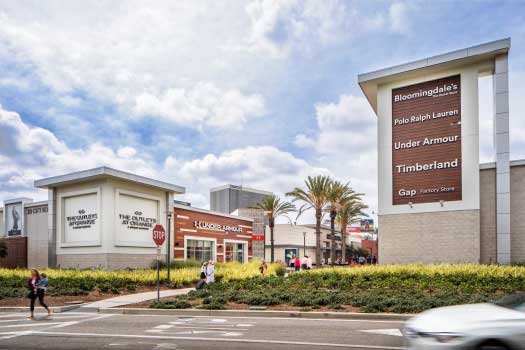[Source: Orange County Register] In November, Californians will vote on whether to increase commercial property taxes.
The California Schools and Local Communities Funding Act of 2020, more commonly known as the split-roll initiative because it treats commercial and residential properties differently, will be coming to the ballot at an inopportune time. It is unlikely to raise as much money as proponents expected before the coronavirus pandemic and recession. Now, there have to be rising concerns that the proposition may worsen the state’s economy and the adverse conditions in the commercial property market.
Commercial property includes a variety of sectors including offices, retail facilities, and hotels. These three categories have been hard hit by the economic downturn and shelter-in-place orders and they will continue to suffer as the coronavirus pandemic changes consumer and worker behavior. For the foreseeable future, many shoppers will likely voluntarily continue to limit their visits to stores and many companies will continue to let employees work from home. Business and leisure travel will be reduced. As a result, there will be less demand for retail space, as well as office, hotel, and lodging space.
An Urban Land Institute survey found that US real estate participants expect a 7 percent drop in commercial real estate values in 2020, other forecasts are gloomier. Real estate analytics firm CoStar projected that 13,000 commercial properties with securitized mortgages would default during the current economic downturn. Properties that default would lose 66 percent of their value, compared to non-defaulting properties dropping 19 percent, according to the report.
Lower commercial real estate values would slash the local government revenue gain expected from the split roll initiative, originally estimated at between $6.5 billion and $11.5 billion annually. If passed, the measure would assess commercial properties at their market value, eliminating assessed valuation caps imposed under Proposition 13 (1978). Under current law, properties are only reassessed to market value when they are sold; between sales, annual assessment increases are limited to 2 percent.
Since property prices in California have generally been rising much more than 2% annually, raising assessments to current market value should bring in a lot more property tax revenue – especially on properties that have not changed hands for several years. But declining valuations in 2020 and beyond would shrink the difference between market and assessed valuations – eliminating it in certain cases.
If the split-roll initiative passes, California local governments should expect less additional revenue than initially projected. And the revenue gain will vary between cities: those that have commercial properties more vulnerable to the recession would see lower receipts.
 Consider the city of Orange, for example. Two of its top 10 taxpayers are shopping centers. The Outlets at Orange is anchored by a 30-screen AMC multiplex and has stores operated by bankrupt retailers Forever 21 and Neiman Marcus. Lower movie attendance and store closures should reduce the Outlet’s valuation, eliminating any prospect for revenue gains. Similarly, the Village at Orange is home to rapidly-shrinking Sears and now-bankrupt 24 Hour Fitness. This mall would also likely face a declining valuation, yielding the city no new property tax revenue.
Consider the city of Orange, for example. Two of its top 10 taxpayers are shopping centers. The Outlets at Orange is anchored by a 30-screen AMC multiplex and has stores operated by bankrupt retailers Forever 21 and Neiman Marcus. Lower movie attendance and store closures should reduce the Outlet’s valuation, eliminating any prospect for revenue gains. Similarly, the Village at Orange is home to rapidly-shrinking Sears and now-bankrupt 24 Hour Fitness. This mall would also likely face a declining valuation, yielding the city no new property tax revenue.
Not only does the split-roll ballot measure figure to raise less revenue than promised, but it could also have some negative side effects. Commercial property owners that ultimately face tax increases may also see lower rental income. With less cashflow, some owners may invest less in improving and maintaining their properties, and, in some extreme cases, may abandon them.
Cities will also have a disincentive to rezone commercial properties to residential uses. Even before coronavirus, the US was undergoing a reduction in its retail footprint. Last year, the Lincoln Land Institute reported that the US had 24.5 square feet of retail space per capita, compared to just 4.5 square feet in Europe. Retailers announced a record 9,300 store closures in 2019.
Many vacant stores could be converted to residential uses, greatly alleviating the housing shortage that California has been experiencing in recent years. But, under the split-roll, cities could be reluctant to make supportive zoning changes since residential properties would promise less future revenue growth than commercial spaces.
Raising taxes during tough economic times is almost never a good idea. But advancing the split-roll initiative in the current environment seems especially unwise.
Source: Orange County Register/
Marc Joffe is a senior policy analyst at Reason Foundation.
July 13, 2020


